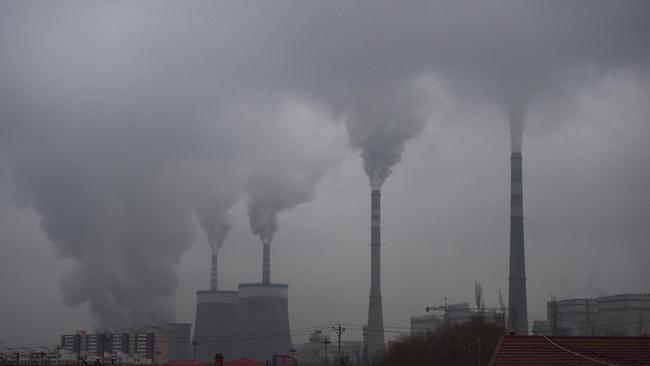China emits more carbon dioxide than Australia does in a whole year
China emits more carbon dioxide every 16 days than Australia emits in an entire year, according to new research.
NSW
Don't miss out on the headlines from NSW. Followed categories will be added to My News.
China emits more carbon dioxide every 16 days than Australia emits in an entire year, according to new research from the Institute of Public Affairs.
The report calls into question whether following through on calls for Australia to move to a net-zero emissions economy by 2050 would have any discernible impact on global carbon dioxide levels, particularly as China has 227 coal-fired power plants in the construction or pre-construction phase.
China, the report found, already operates 56 times as many coal-fired power stations as Australia.

And while Australia’s per capita carbon emissions have declined by 15.4 per cent, China’s per capita emissions have shot up by a whopping 83.5 per cent over the same period.
“It is reckless and futile for the political class to impose on Australians further severe cuts to emissions which costs jobs and livelihoods, while China — the world’s largest emitter — continues to rapidly increase its emissions without consequence,” said IPA research fellow and report author Cian Hussey.
“Calls for Australia to adopt a net-zero emissions target ignore the significant economic, social, and humanitarian costs which would inevitably be the result of such a target.”
According to Nationals senator Matt Canavan, the revelations of the extent of China’s push to expand its coal-generation capacity should cause Australia to rethink plans to decarbonise the local economy.

“If China doesn’t cut its emissions there is no way we should cut our own,” Mr Canavan said.
“China may have stopped taking Australian exports of coal but we keep exporting them our jobs by trying to reach mythical and ineffective net-zero emissions targets.”
IPA research released earlier this month suggested that a net-zero carbon emissions target could put as many as 653,600 jobs at direct risk, particularly in the agriculture, heavy manufacturing and coal mining sectors.
The new analysis also adds to the simmering debate over nuclear power, which was given a push last week by Nationals senators who called for the Clean Energy Finance Corporation to be allowed to invest in nuclear power.




